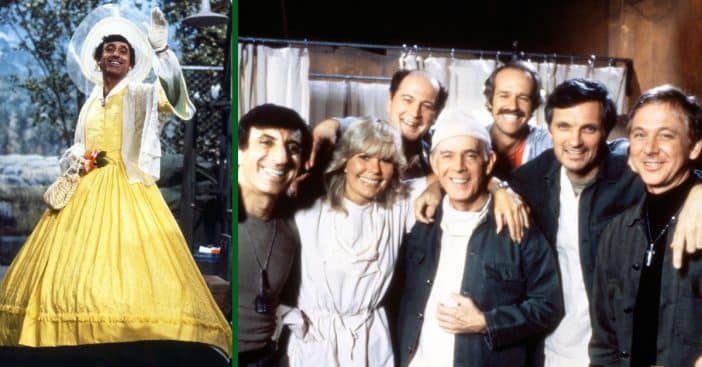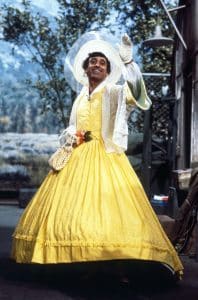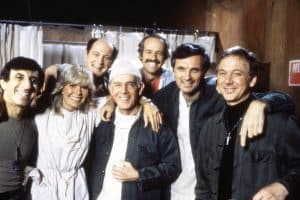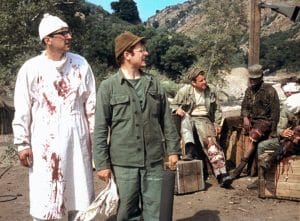
Across 11 seasons, M*A*S*H reigned supreme as one of the biggest programs of its time, not just as a comedy, drama, dramedy, or wartime series, but as a show overall. Part of that irrevocably comes from its talented cast and the colorful characters they portrayed, not just lead man Alan Alda but also Gary Burghoff, Loretta Swit, and – most uniquely – Jamie Farr as Maxwell Klinger.
Discussing Farr’s Klinger means also remembering the character’s unique habit of wearing dresses, though he always comfortably called himself a man at the end of the day. Nor was it a statement on breaking gender norms. At the root of the matter, Klinger wanted to avoid fighting in the war and that, in itself, had an anti-war message consistent with the rest of M*A*S*H‘s unique and powerful way of expressing its ideas.
‘M*A*S*H’ was not afraid to express anti-war sentiments and even did so through Klinger

It’s been just over 50 years since M*A*S*H premiered and to its day its celebrated as a remarkable success, triumphantly walking a precarious and important line dealing with war, loss, combat, and patriotism. M*A*S*H did not shy away from comedy even while determinedly addressing the horrors of battle – both in one fell swoop of a bomb or gradually as the people who return from war are different from those who left for it. These sentiments are explored even by Alda’s Hawkeye and Swit’s Margaret Houlihan, allowing for grief and doubt to coexist with enduring patriotism.
RELATED: 40 Years Ago Today, ‘M*A*S*H’ Finale Made Television History
Indeed, all the characters address the looming topic of war in various ways balancing love of country with hatred for the cost humanity’s propensity for violence demands. This message can be seen in Klinger with every dress he wears, every floral hat he dons, and every earring he clips into place. This is not someone who wants to fight and so wearing traditionally women’s clothing acted as a shield from just that. Klinger kept his eyes on Section 8, which would classify him as “unfit” to serve in the military.
Eventually, this wardrobe choice gradually disappeared from Klinger, but it wasn’t because M*A*S*H changed its messaging. Far from it.
‘M*A*S*H’ continues to make history

Maxwell Klinger was supposed to be something of a one-off character, in the background for comedy. His first appearance was in season one, episode four, “Chief Surgeon Who?” The dresses helped him stand out and Klinger was brought to the forefront as a main character, a favorite among audiences. All the while, this beloved character was determinedly evading combat. He was not condemned for not wanting to participate in the war; rather, he was quite loved. This was a subtle reflection of the times and of the bigger sentiments running through the rest of the 4077th Mobile Army Surgical Hospital.

So, it was not a change of heart that drove the M*A*S*H team to have Klinger wear dresses less and less. It was a persona, familial one. At that point in filming the series, Farr had a young son in school and he did not want his kid to get bullied because his father wore dresses on TV. It just so happened, Screen Rant notes, that it also tied that plotline up in a nice bow and set Klinger up perfectly for a refreshing restart. A whole new character and arc with all parties still present.
